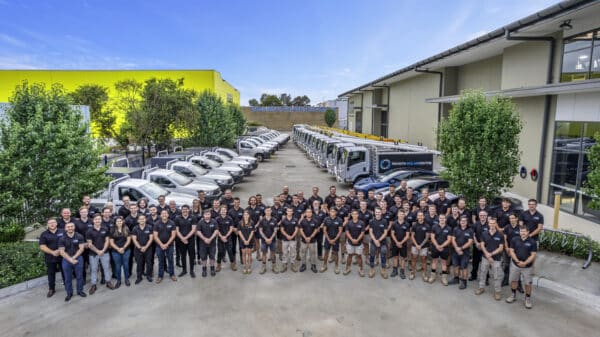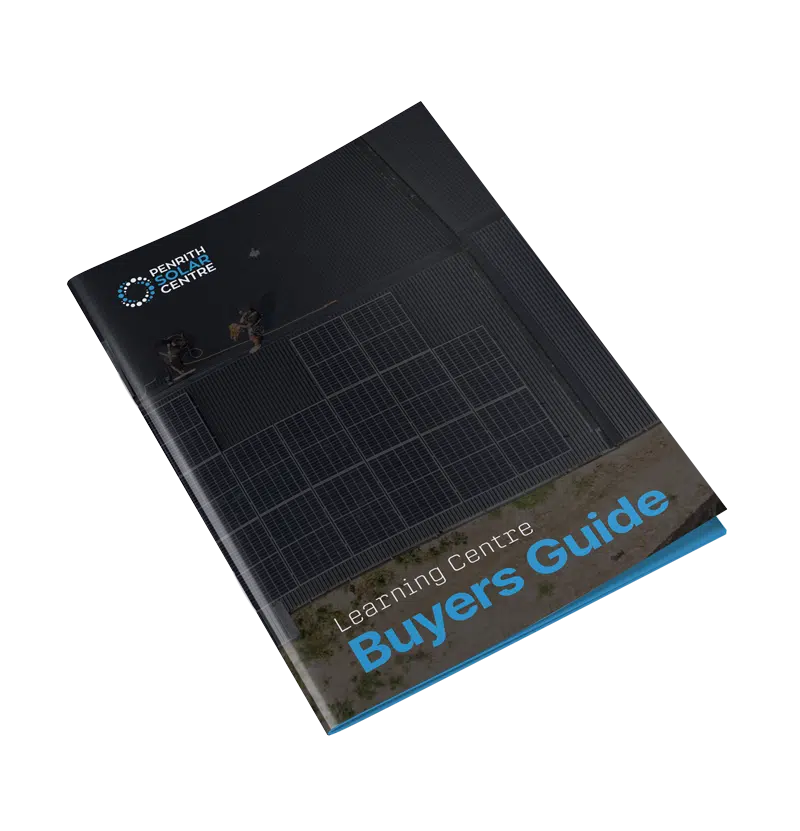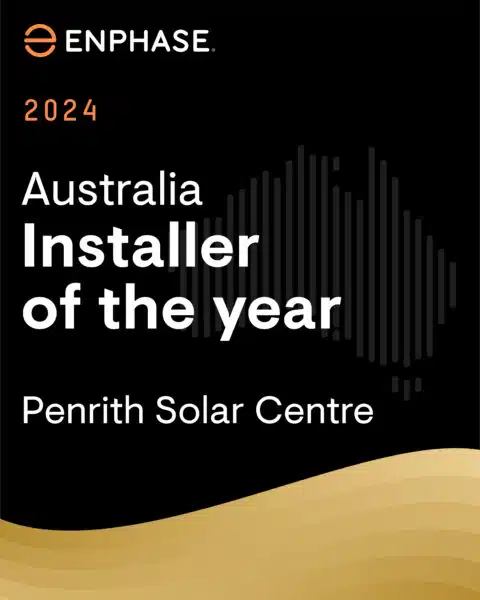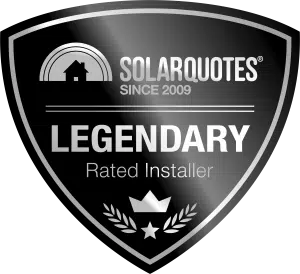
Solar panels are a great way to save money on energy bills and reduce your carbon footprint. But like any technology, solar panels can experience problems over time. These issues are usually small and can be prevented with regular care.
At Penrith Solar Centre, we’re experts in helping you keep your system up and running at optimal efficiency. There are a lot of myths and misconceptions about how to care for solar panels. We’re here to debunk those myths and keep your system up and running and harvesting those electrons for you.
In this article, you’ll learn about the following:
- Problem 1: Can Solar Panels Work in Shade?
- Problem 2: Does Dirt Affect Solar Panels?
- Problem 3: Are Solar Panels Weather Resistant?
- Problem 4: System Downtime from Neglected Maintenance
By the end of this article, you’ll be up to date on the most common solar panel problems and how to avoid them. By keeping your system in good shape, you can make sure it lasts for many years and continues to perform at its best.
Problem 1: Can Solar Panels Work in Shade?
Solar panels need exposure to sunlight to work efficiently. Over time, trees can grow and block sunlight from reaching your panels. This reduces the amount of electricity your system can generate.
How to Avoid This Problem: Keep an eye on any trees that could block sunlight from reaching your panels. Trim back branches regularly to ensure your panels get as much sun as possible. If you’re planning to install solar panels, work with your installer to find the best spot on your roof where shading is least likely to be a problem.
If you have shading or a complex roof, a good installer will recommend a microinverter solar system. These systems from Enphase offer panel-level monitoring and optimisation which increases efficiency in situations where there’s a lot of shading.
Each microinverter is mounted under each solar panel so they all work independently of each other. When there is shade on a solar panel, the performance drops in that panel only. The others can continue functioning at optimal efficiency. A little bit of shade isn’t a problem with a microinverter system.
If you’re interested in learning a bit more about how microinverters compare to string inverters, you might want to check out the following article titled, Microinverters vs. String Inverters: A Transparent Comparison.
Problem 2: Does Dirt Affect Solar Panels?
One of the most common issues with solar panels is dirt. Dust, bird droppings, pollen, and leaves can build up on the surface of your panels. When panels get dirty, they don’t absorb as much sunlight, which reduces their efficiency.
This means your system produces less electricity, and your savings drop. Even with an Enphase microinverter system, there’s only so much it can do with obstructions on your panels.
How to Avoid This Problem: Solar panels are installed to be self-cleaning. It’s why we install them at an angle: so the rain can keep them clean. But sometimes there’s no rain for a long period of time, this is not uncommon in Australia.
Cleaning your solar panels is the easiest way to avoid this issue. You can clean the panels yourself using water. Be sure to avoid using harsh chemicals or abrasive materials that could scratch the surface.
If your panels are hard to reach or if you’d rather not do it yourself, we offer professional cleaning services. Having your panels professionally cleaned once or twice a year can help keep them running at peak efficiency.
If you’re interested in learning a bit more about solar panel maintenance, you might want to check out the following article titled, How to Clean Solar Panels.
Problem 3: Are Solar Panels Weather Resistant?
Solar panels are designed to withstand different weather conditions, but extreme weather can sometimes cause damage. Hailstorms, heavy winds, or debris from storms can crack or scratch the panels.
How to Avoid This Problem:
After any major storm, check your solar panels for damage. If you notice any cracks or scratches, contact your installer or a solar technician right away to inspect and repair/replace the panels. Solar panels come with warranties that can cover weather-related damage, so it’s important to act quickly to prevent the problem from getting worse.
If you’re interested in learning a bit more about our service department at PSC, you might want to check out the following article titled, Penrith Solar Centre’s Service Department Safeguards the Future of Your System.
Click here for solar solutions.
Problem 4: System Downtime from Neglected Maintenance
While solar panels are generally low maintenance, neglecting routine checks and servicing can lead to unexpected system downtime. Over time, even minor issues can cause your system to stop working temporarily. This downtime reduces your energy savings and might require costly repairs if the issue isn’t caught early.
How to Avoid This Problem: The best way to prevent system downtime is by choosing the right installer. In the solar industry, there are two types of solar installation companies: in-house like Penrith Solar Centre and the sales/subcontractor business models.
Because we’re an in-house team, we handle all repairs and servicing. We fulfill your warranties. We’re your partner when you choose us. It often takes up to two or three business days, but we’re awfully efficient in repairing or replacing components. Your system will often only be down for a week.
The other type of business model, sales and subcontractor, is a little more complicated. You purchase your solar system from a sales company who then hires a subcontractor to install the system.
When something goes wrong with your system, it can be hard to get it repaired. The sales company will often point fingers at the subcontractor, and the subcontractor points fingers back at the sales company.
Neither wants the expense of fulfilling your warranties. And your system will be down the whole time. You’re losing homegrown electricity and importing expensive energy from the grid again. Choose your installer carefully.
You can also monitor your system’s performance using the inverter’s app or online portal to spot any unusual drops in power output. Most monitoring apps have alerts for drops in productivity. Use the app regularly to stay on top of system problems.
Enphase systems come with this software, called the Enlighten App. Not every solar system comes with this feature. If the system you ultimately install doesn’t have energy use monitoring software, consider installing a third party app that does this like Solar Analytics.
If you’re interested in learning a bit more about the importance of a good installer for your solar (the most important component of any system, seriously), you might want to check out the following article titled, In-house Installers vs. Subcontractors: Which is Better?
Start Saving with solar today.
Conclusion: Keep Your Solar Panels in Peak Condition with Regular Care
Solar panels are a reliable, long-term investment, but like any system, they need some basic upkeep to keep performing at their best. By cleaning your panels regularly, checking for weather damage, monitoring your inverter, trimming nearby trees, and scheduling routine maintenance, you can avoid the most common solar panel problems.
At Penrith Solar Centre, we understand how steep the learning curve is for all things related to solar. With these simple steps, your solar system will continue to save you money and produce clean energy for many years to come.

If you’re interested in learning a bit more about your energy needs, you might want to check out the following article titled, How Much Solar Do You Need?










